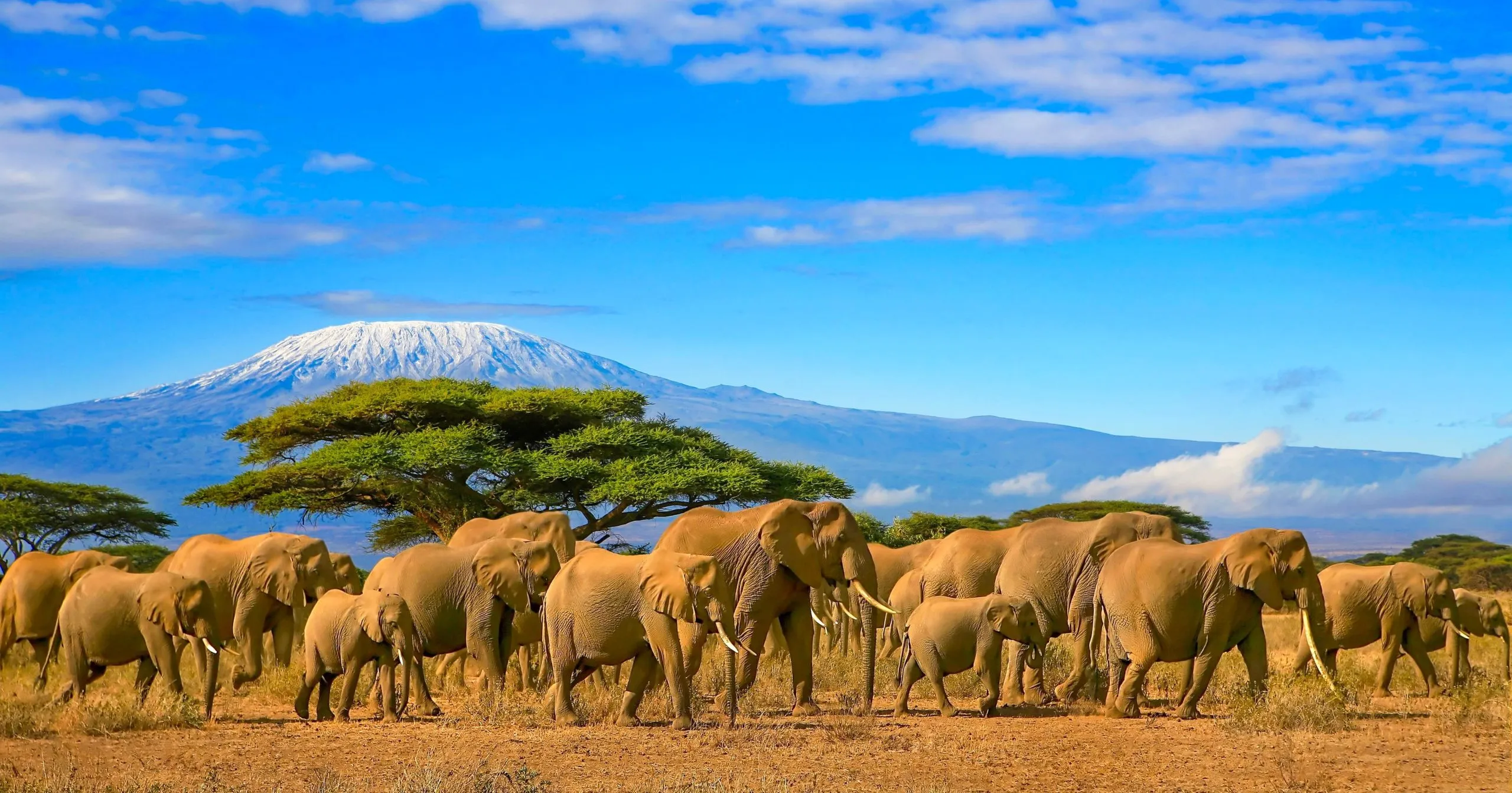Kenya, located in the heart of East Africa, is a country where natural beauty meets adventure. It’s a destination known for its diverse wildlife and landscapes, from the flamingo lakes of the Great Rift Valley to the wildlife-rich Maasai Mara.
It’s a country where traditional culture is woven into the modern fabric of life, from the bustling streets of Nairobi to the pastoral tribes of the northern frontier. With its pristine beaches, mountain highlands, and abundant wildlife, Kenya offers a rich tapestry of experiences for every traveler looking to explore the natural wonders and cultural depths of Africa.
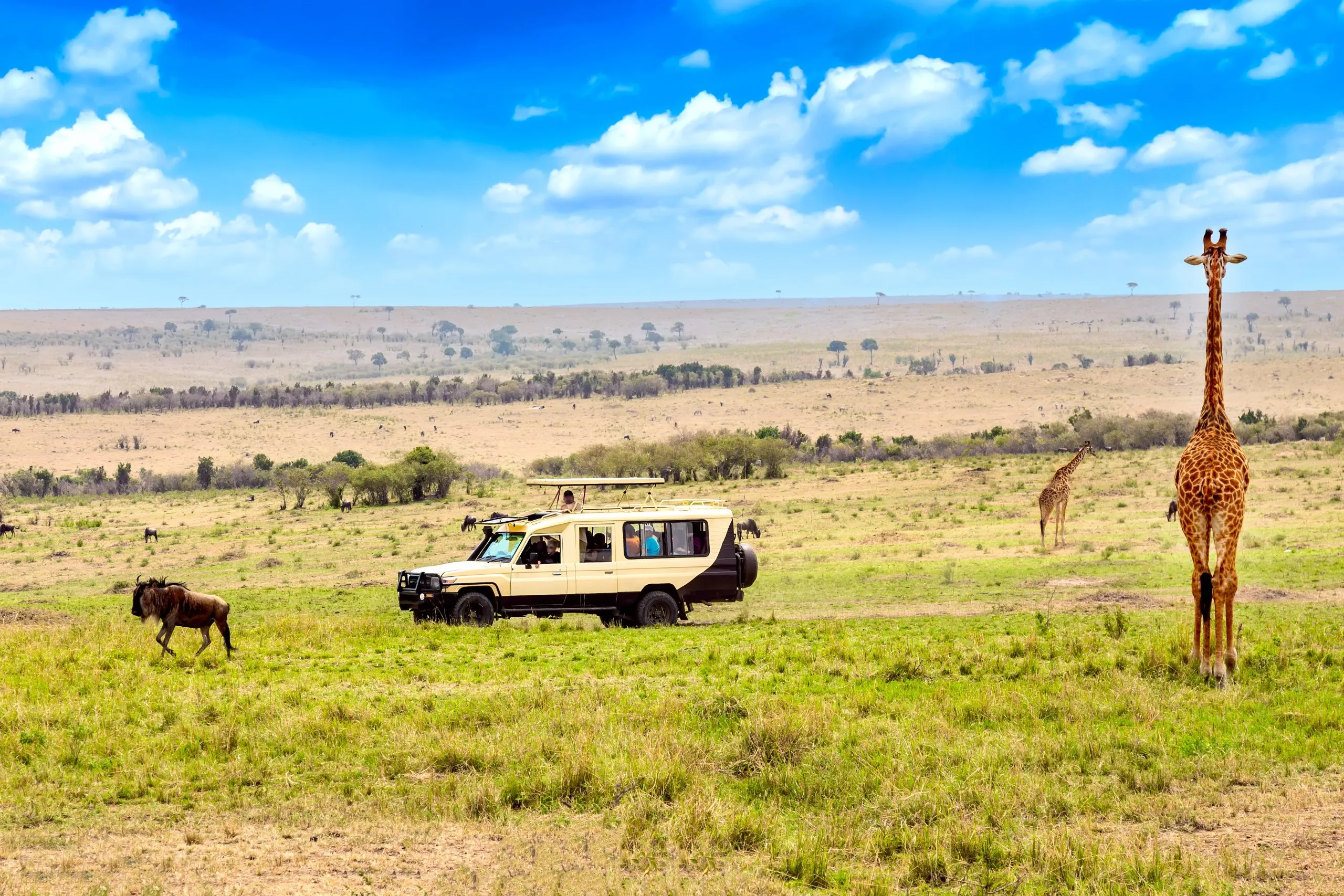
Which locations in Kenya should I visit on a safari?
1. Masai Mara National Reserve
Not just a place but a spectacle in itself, the Masai Mara is synonymous with wildlife and the African safari experience. It’s the northern extension of the Serengeti and home to the spectacular Great Migration, where over a million wildebeest, zebra, and gazelles traverse the plains in search of fresh pasture. The reserve is also a photography haven, offering opportunities to capture the Big Five in their natural habitat. The Mara River, dotted with hippos and crocodiles, adds a dynamic element to the game-viewing experience.
Visit the Masai Mara National Reserve on the 3-Day Masai Mara Ashnil Camp Safari.
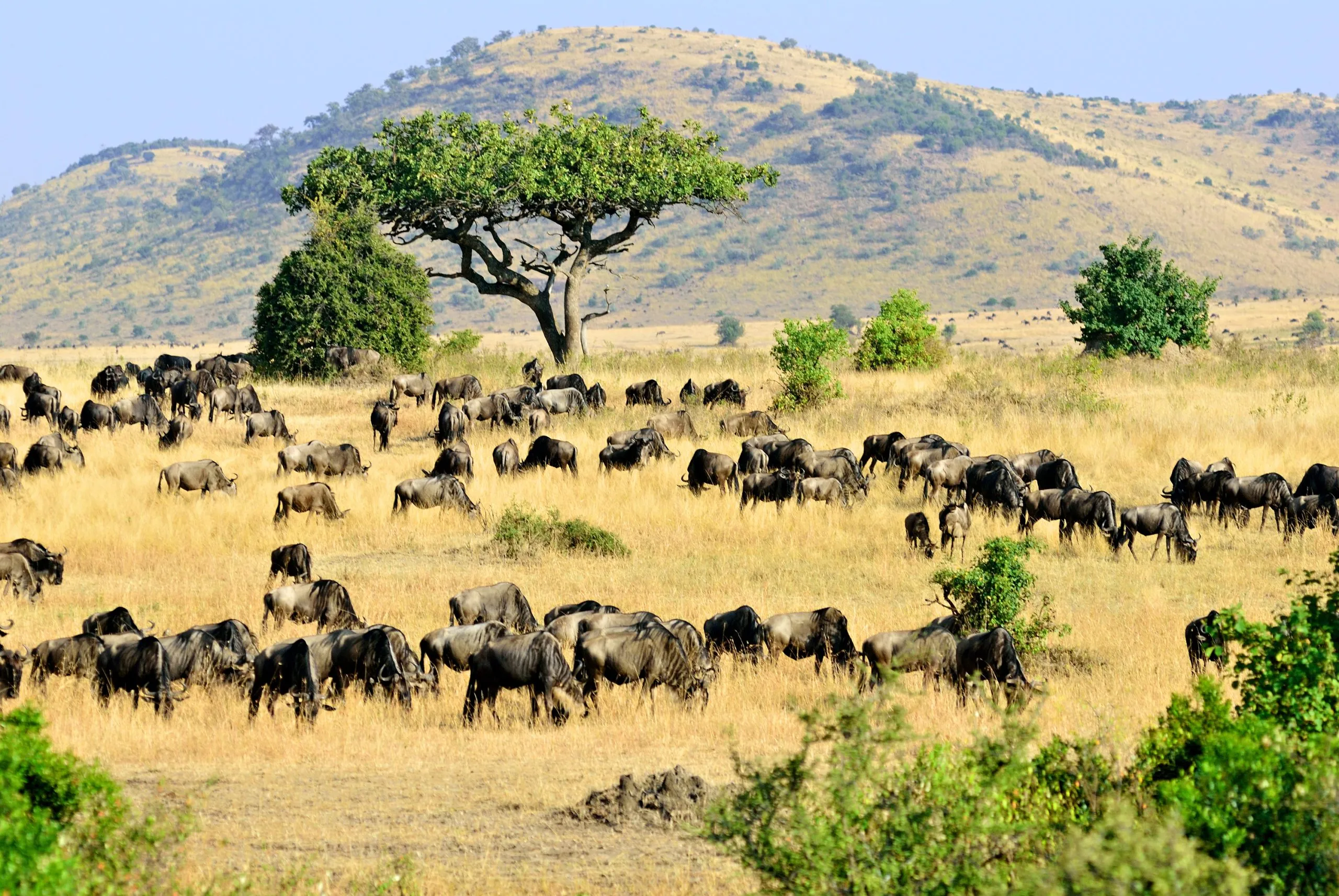
2. Hell’s Gate National Park
Nestled in the Great Rift Valley, Hell’s Gate National Park offers an extraordinary safari experience, distinguished by its dramatic geothermal activity and unique wildlife. The park is a sanctuary for animals such as buffaloes, zebras, and giraffes, and its predator-free status makes it ideal for hiking and cycling safaris amidst belching geysers and towering cliffs. Renowned for rock climbing and birdwatching, with over 100 species, including the rare Verreaux’s eagle, the park also showcases the harmony of nature and renewable energy at the Olkaria Geothermal Station.
Visit the Hell’s Gate National Park on the 7-Day Best of Kenya Safari.
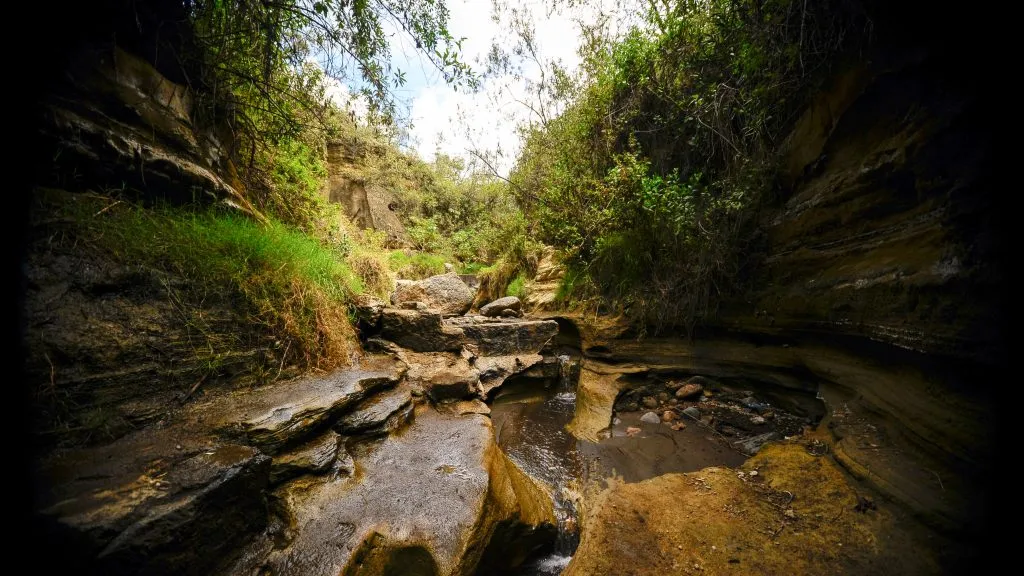
3. Samburu National Reserve
Samburu presents a different facet of the Kenyan safari, with its arid landscapes and unique wildlife. The Ewaso Ng’iro River is the lifeline of the area, attracting a variety of wildlife and hosting a large population of Nile crocodiles. The reserve is home to species rarely found elsewhere, like the reticulated giraffe and the Somali ostrich, making it a unique safari destination for those looking to venture off the beaten path.
Visit Samburu National Reserve on the 4-Day Samburu Flying Package.
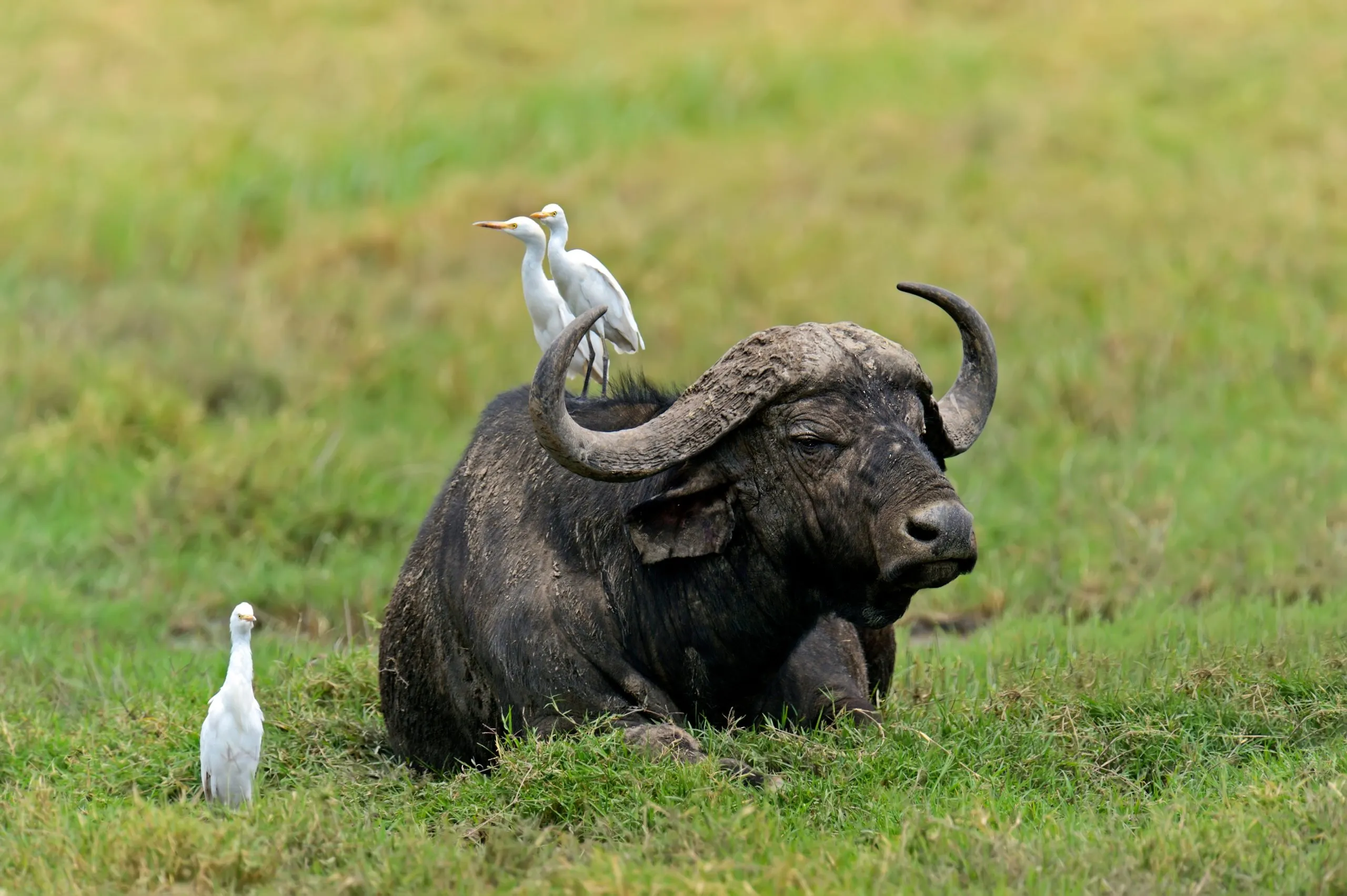
4. Lake Nakuru National Park
Once known for its vast flamingo population painting the lakeshore pink, Lake Nakuru offers a rich biodiversity within its compact area. The park is now a sanctuary for rhinos, with black and white rhinos thriving here. The viewpoints, like Lion Hill, offer panoramic views of the lake and the millions of pelicans and flamingos on its shores.
Visit Lake Nakuru National Park on the 7-Day Tree Hotel Samburu-Nakuru-Masai Lodge Centy Safari.
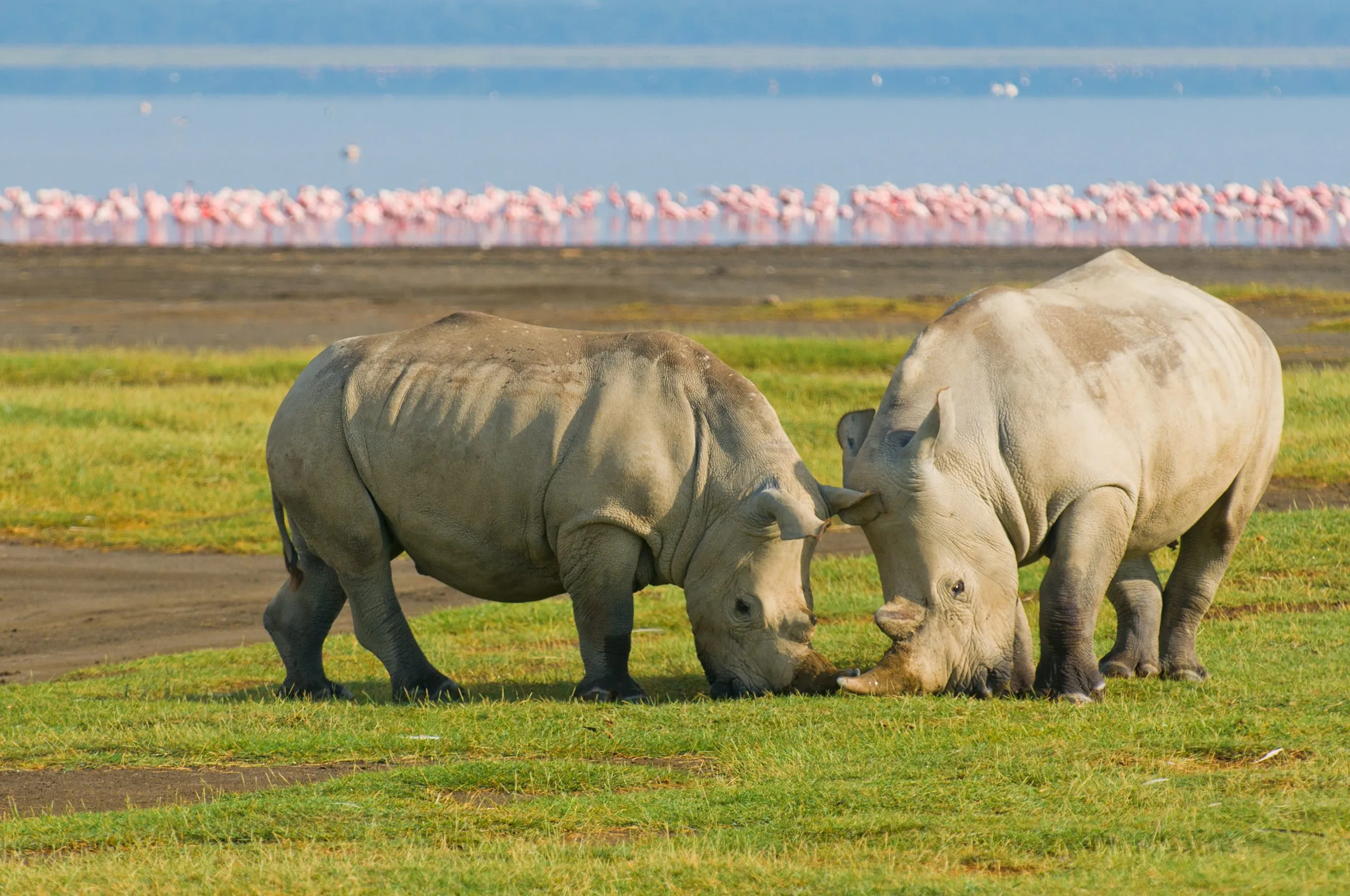
5. Amboseli National Park
Amboseli offers more than just a backdrop of the majestic Kilimanjaro. It’s an arena where you can witness large herds of elephants roaming against the backdrop of Africa’s tallest peak. The park’s relatively small size and open plains make it easy to spot wildlife, offering intimate encounters with animals like lions, cheetahs, and countless bird species. The observation hill provides panoramic views of the park, especially at sunset, creating a photographer’s paradise.
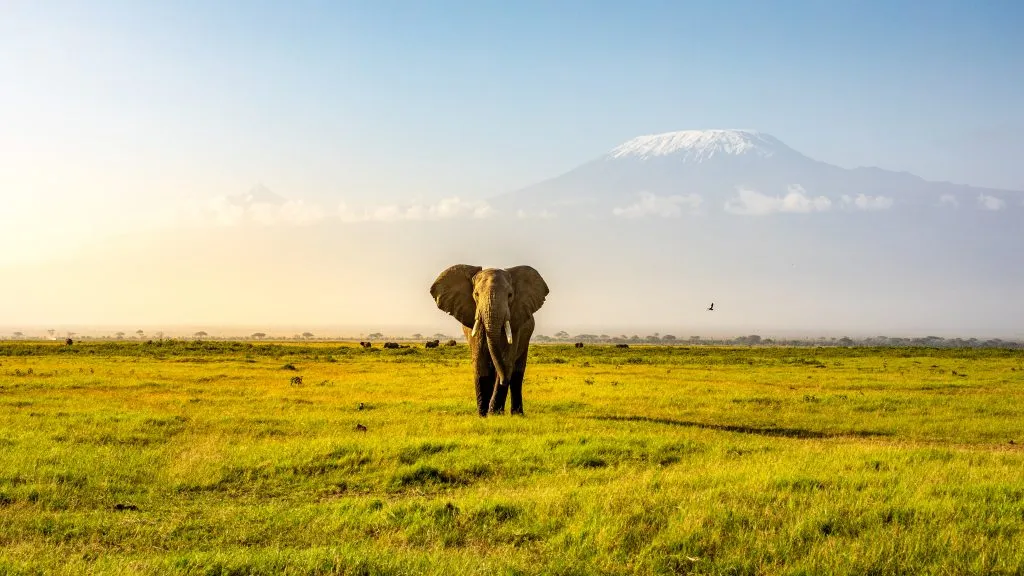
6. Tsavo East and West National Parks
Together, these parks form one of the largest conservation areas on the planet. Tsavo is a wild and untamed area of pristine wilderness. Tsavo East is known for its vast herds of dust-red elephants, while Tsavo West offers a more diverse landscape, including springs, underwater hippo viewing at Mzima Springs, and the Shetani lava flows.
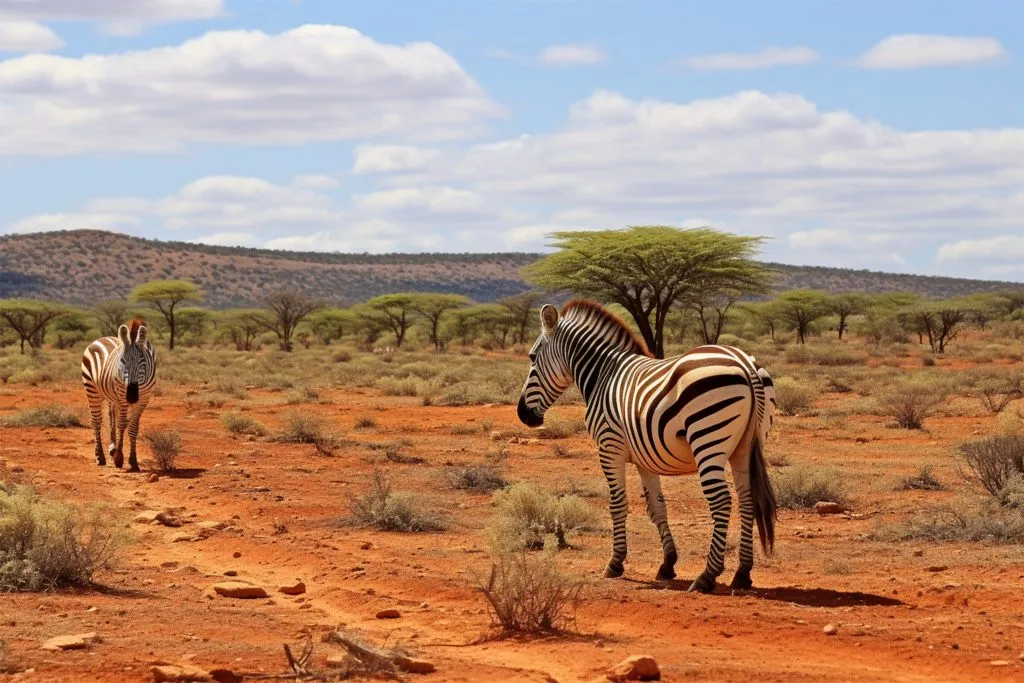
When is the best time to visit Kenya?
Timing your visit can significantly influence your safari experience. The dry months from June to October offer the best game viewing as animals congregate around water sources. This period also coincides with the Great Migration in the Masai Mara, a spectacle that attracts nature enthusiasts from around the world.
However, for bird watchers and those interested in lush, scenic landscapes, the wet seasons (November-December and March-May) offer a unique safari experience with newborn animals and migratory birds filling the skies.
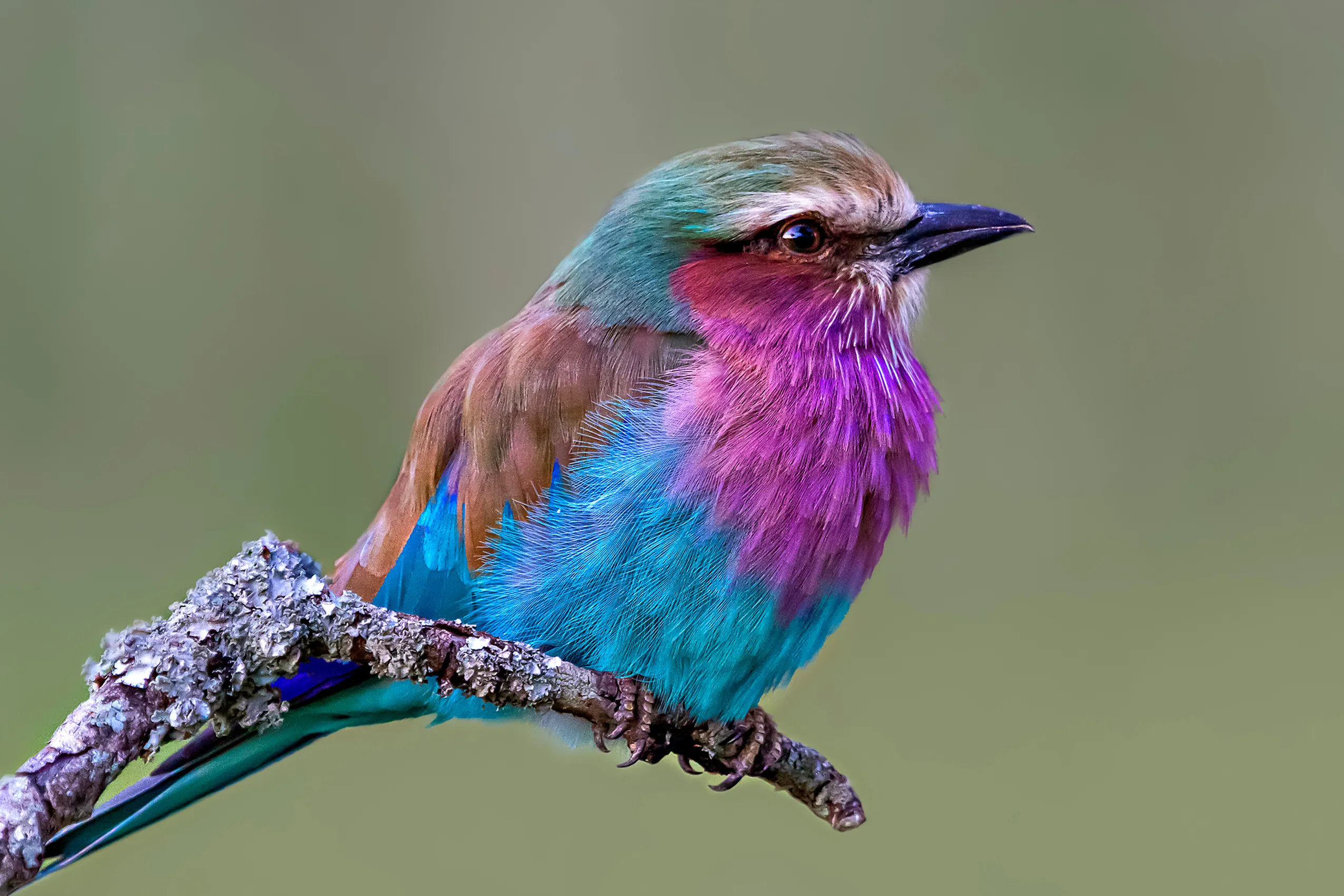
Is Kenya safe?
While Kenya is a relatively safe destination for tourists, it’s important to take standard travel precautions. Stay informed about the latest travel advisories from your government. Within the safari destinations, safety measures are paramount, with experienced guides and strict park regulations to ensure a safe experience. In cities, it’s advisable to avoid non-tourist areas at night, keep valuables secure, and remain vigilant, as you would in any major city around the world.
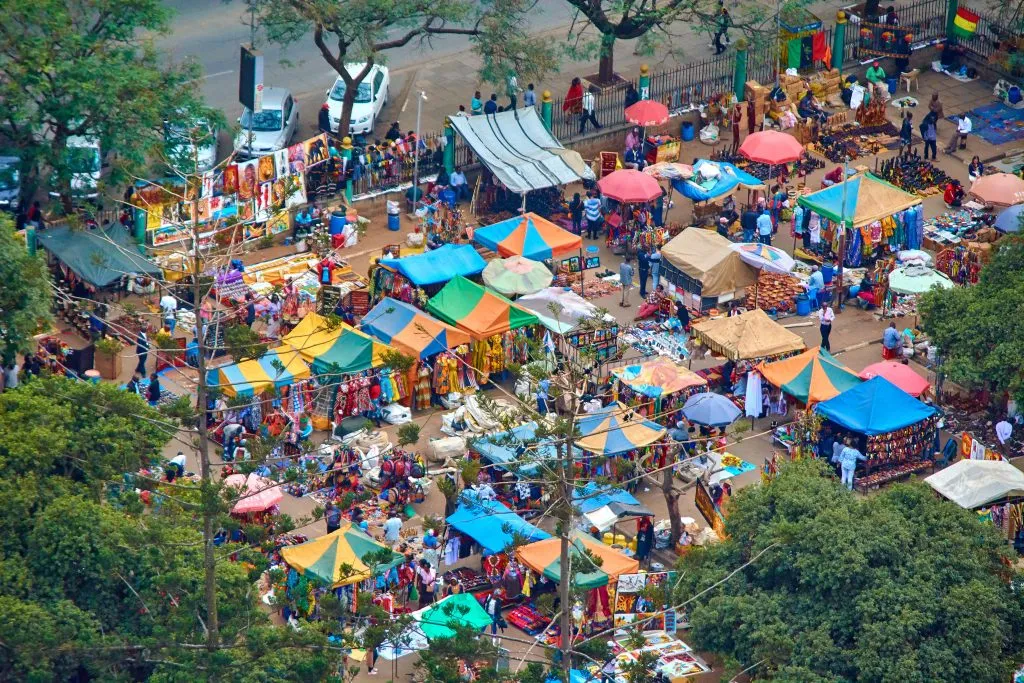
Do I need a visa to enter Kenya?
Planning your entry into Kenya is crucial for a smooth experience. Most travelers will arrive through Jomo Kenyatta International Airport in Nairobi. Visas are required for most nationalities and can be obtained online through the eVisa system. The process is straightforward, but it’s advisable to apply well in advance of your travel dates. Ensure your passport has at least six months of validity, and check if your country is part of the East Africa Tourist Visa program, which offers multi-country access, a convenient option for those exploring the wider region.
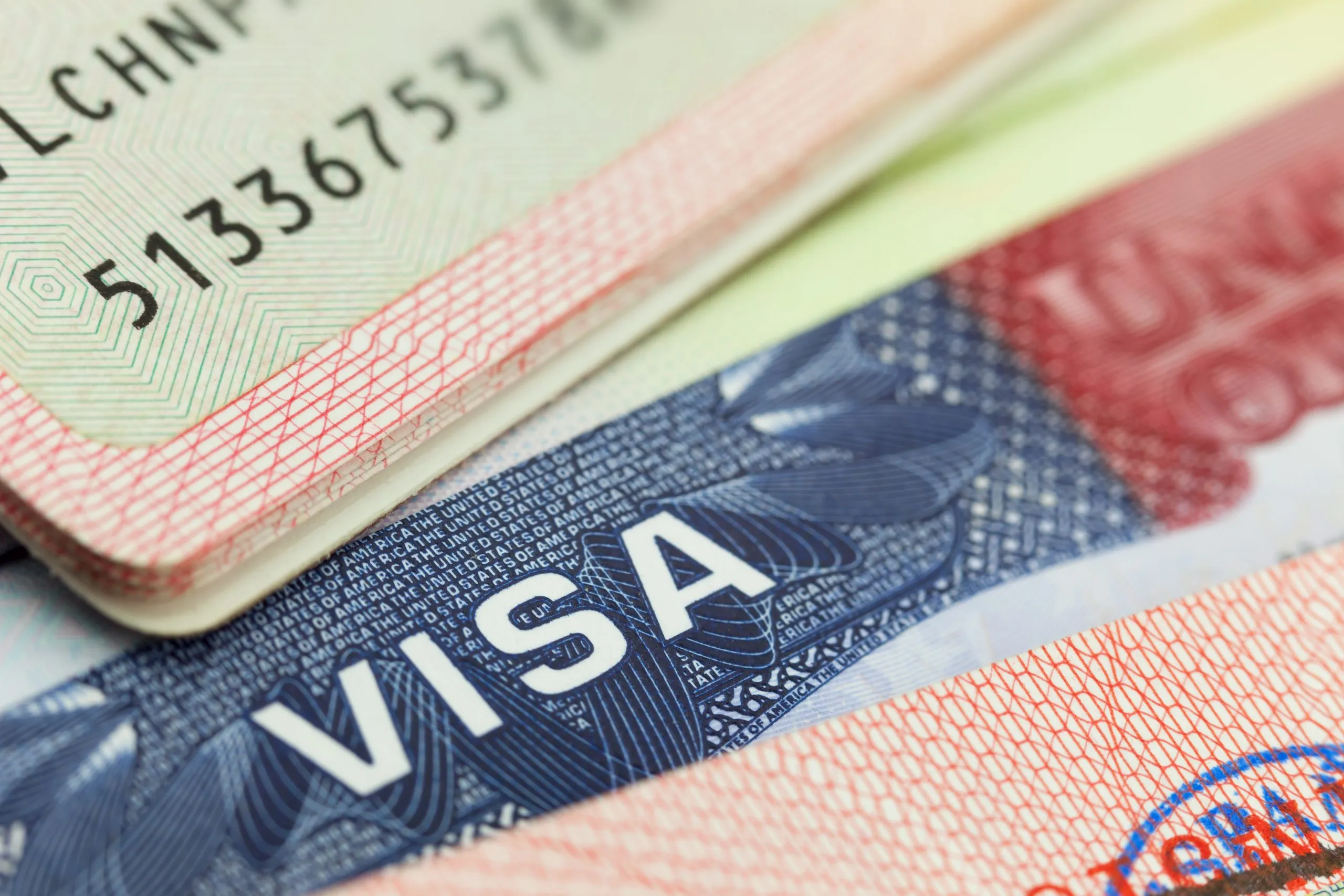
How is local transport in Kenya?
Getting around Kenya is part of the adventure. Domestic flights connect major cities and safari destinations, offering a quick and scenic way to cover large distances. For those interested in local experiences, the matatu minibusses offer a colorful and vibrant means of transport, though they may not adhere to strict timetables. Private transfers and taxis provide a more comfortable and secure way to navigate, especially in urban areas. For a scenic and leisurely pace, consider the train service between Nairobi and Mombasa, offering views of the countryside and a taste of local life.
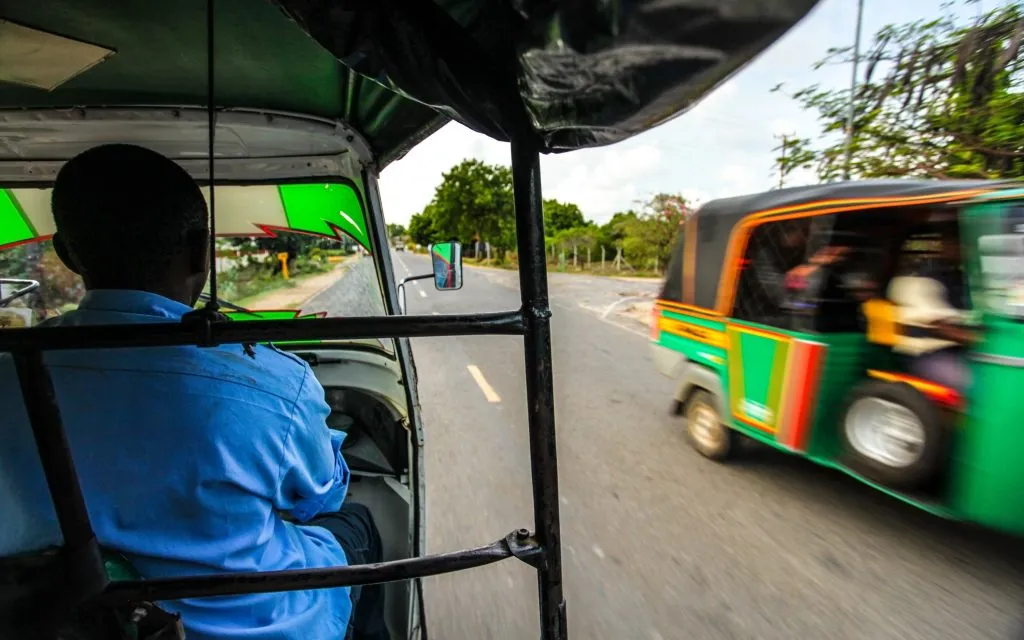
What are the accommodation options in Kenya?
Accommodation options in Kenya cater to every taste and budget. In cities like Nairobi and Mombasa, you’ll find a range of hotels from international luxury brands to local boutique establishments. Safari lodges and camps in the national parks offer an immersive wildlife experience, with options ranging from luxury tented camps to rustic lodges. For beach lovers, the Kenyan coast offers resorts and guesthouses with stunning ocean views and access to pristine beaches like Diani Beach. Eco-lodges are a great choice for those looking for sustainable and community-involved accommodation options.
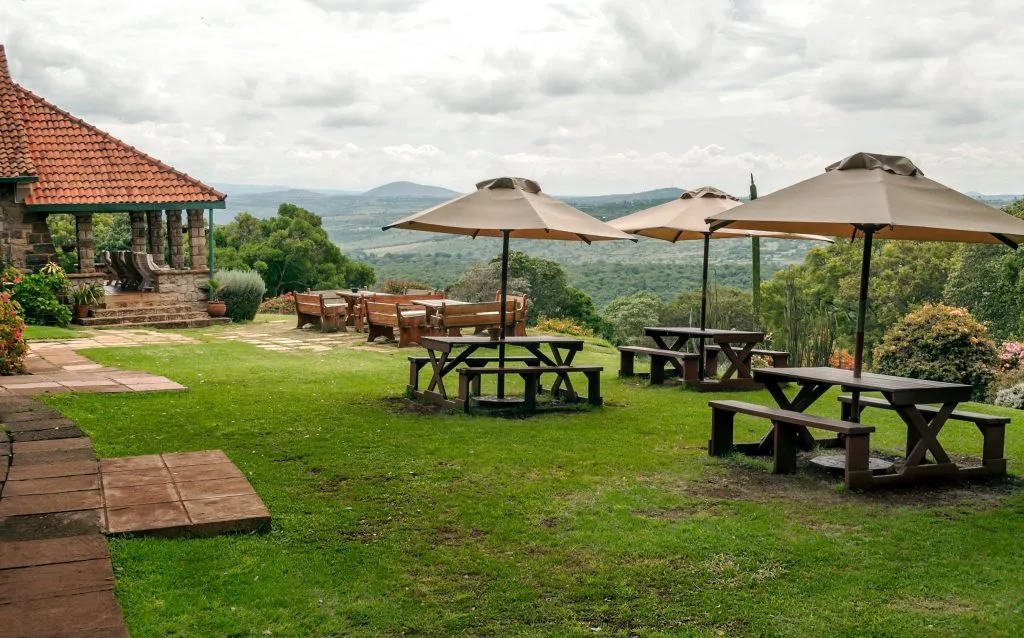
What else can I do in Kenya besides seeing wildlife?
Kenya is a land of diversity, not just in wildlife but in cultural and adventure experiences. Apart from traditional safaris, visitors can engage with local Maasai and Samburu communities, offering a glimpse into the rich cultural heritage of Kenya. Birdwatching is spectacular, especially in the Rift Valley lakes. For the adventurous, hot-air balloon safaris offer a unique perspective of the Maasai Mara, and water sports along the coast cater to beach enthusiasts. Conservation centers and sanctuaries provide insights into wildlife protection efforts, making your trip a holiday and a learning experience.
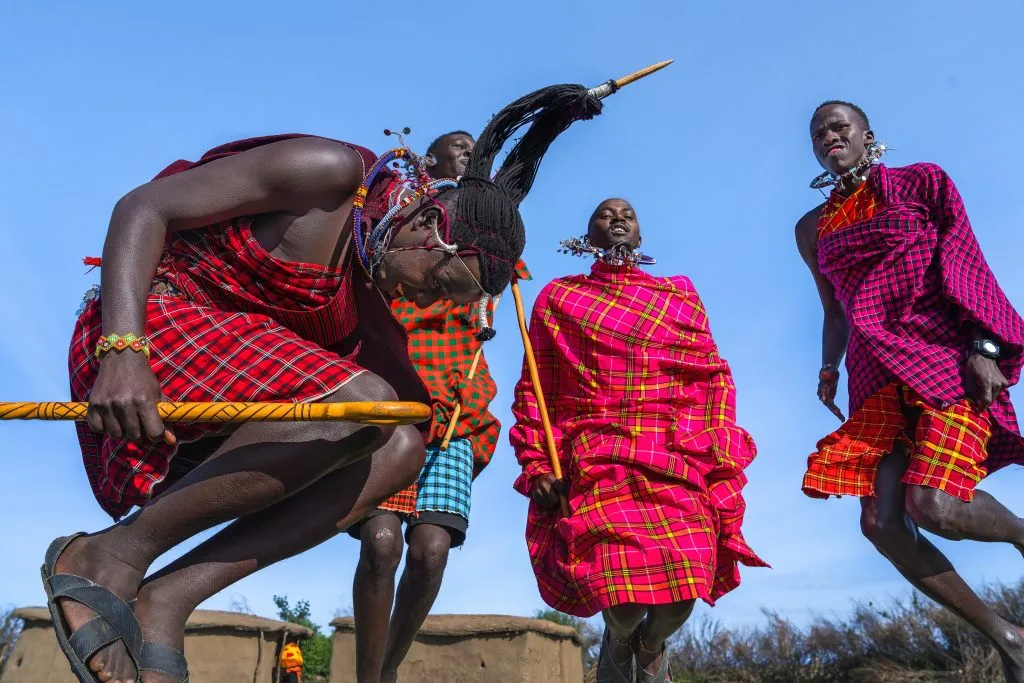
How is the food?
Kenyan cuisine is a reflection of its cultural diversity. Traditional dishes like ugali, nyama choma, and kachumbari offer a taste of local flavors. Indian and coastal influences introduce a variety of seafood dishes, curries, and chapatis, enriching the culinary landscape. Tea plantations in the highlands produce some of the world’s best teas, a perfect accompaniment to a Kenyan meal. Street food stalls and local eateries offer an authentic and affordable dining experience, allowing visitors to explore the country’s culinary diversity.

What are some etiquette tips for when in Kenya?
Understanding the local customs and etiquette can greatly enhance your travel experience. Tipping is appreciated but not obligatory, with customary amounts for guides, drivers, and service staff. Respectful interaction, including greetings and asking permission before taking photographs, is important. Dress conservatively, especially when visiting rural areas or religious sites. Learning a few basic phrases in Swahili can enrich your interactions with locals and show respect for the local culture.
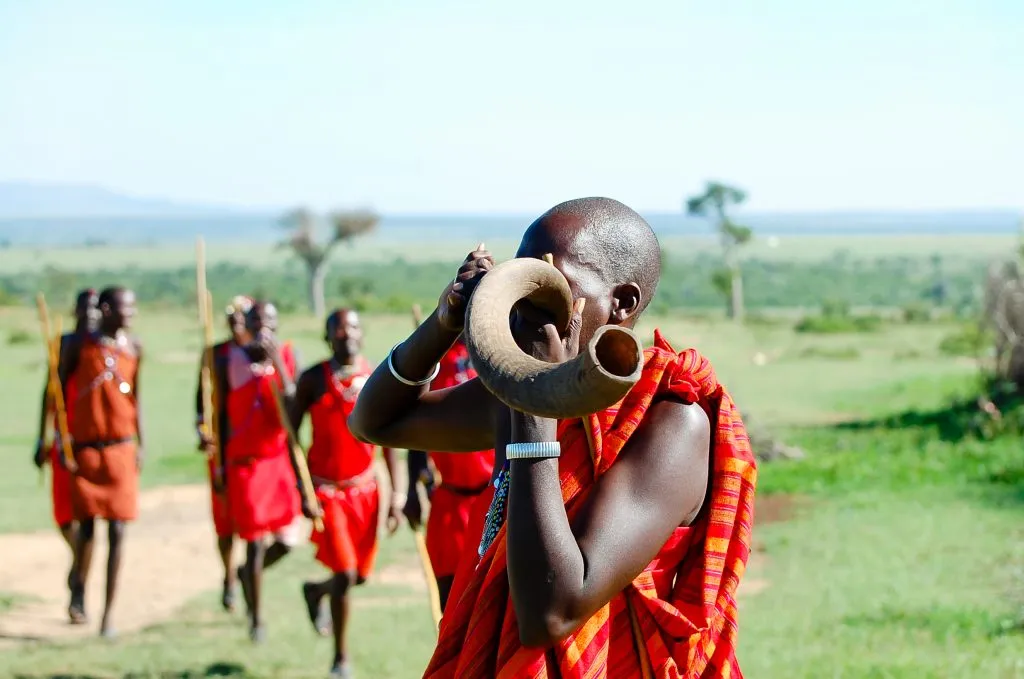
Why Choose Safari Tours Africa to Travel to Kenya?
Choosing Safari Tours Africa means opting for an experience tailored to your preferences, ensuring a seamless and authentic journey through Kenya’s landscapes and wildlife. With partnerships with the best local operators and a commitment to personalized service, Safari Tours Africa promises an unforgettable adventure, connecting you with the heart of this vibrant and diverse country on our Kenya Safaris.


